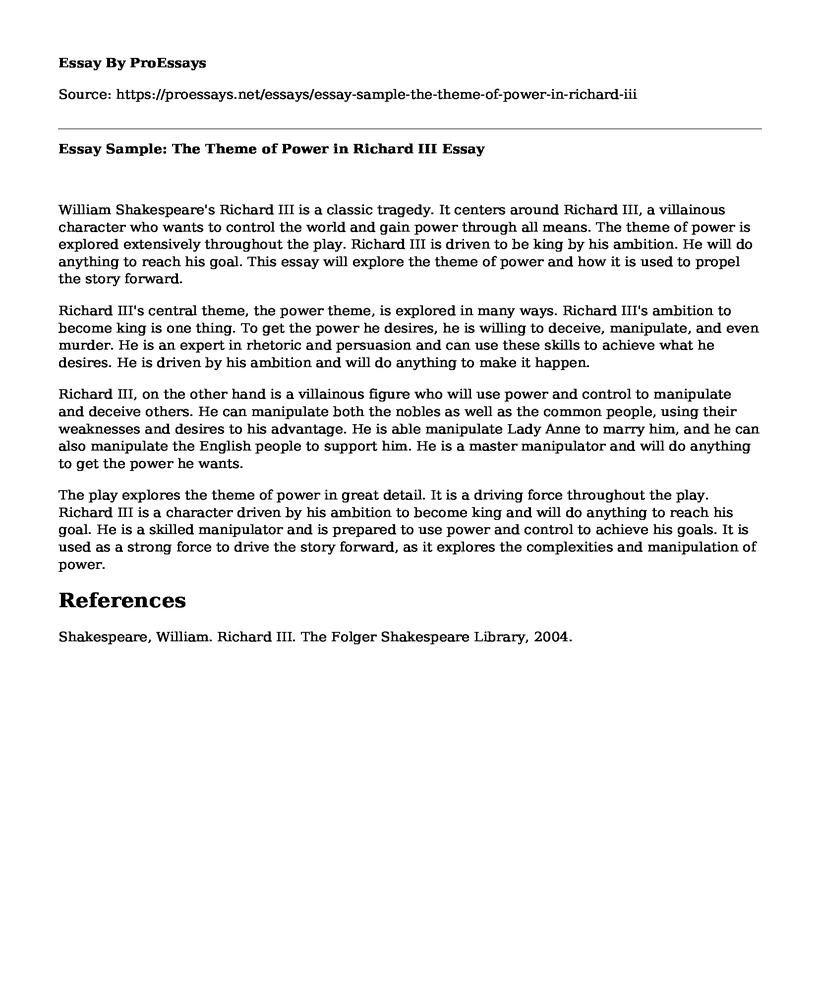William Shakespeare's Richard III is a classic tragedy. It centers around Richard III, a villainous character who wants to control the world and gain power through all means. The theme of power is explored extensively throughout the play. Richard III is driven to be king by his ambition. He will do anything to reach his goal. This essay will explore the theme of power and how it is used to propel the story forward.
Richard III's central theme, the power theme, is explored in many ways. Richard III's ambition to become king is one thing. To get the power he desires, he is willing to deceive, manipulate, and even murder. He is an expert in rhetoric and persuasion and can use these skills to achieve what he desires. He is driven by his ambition and will do anything to make it happen.
Richard III, on the other hand is a villainous figure who will use power and control to manipulate and deceive others. He can manipulate both the nobles as well as the common people, using their weaknesses and desires to his advantage. He is able manipulate Lady Anne to marry him, and he can also manipulate the English people to support him. He is a master manipulator and will do anything to get the power he wants.
The play explores the theme of power in great detail. It is a driving force throughout the play. Richard III is a character driven by his ambition to become king and will do anything to reach his goal. He is a skilled manipulator and is prepared to use power and control to achieve his goals. It is used as a strong force to drive the story forward, as it explores the complexities and manipulation of power.
References
Shakespeare, William. Richard III. The Folger Shakespeare Library, 2004.
Cite this page
Essay Sample: The Theme of Power in Richard III. (2023, Jan 31). Retrieved from https://proessays.net/essays/essay-sample-the-theme-of-power-in-richard-iii
If you are the original author of this essay and no longer wish to have it published on the ProEssays website, please click below to request its removal:
- Motivation for Murder in Killings and A Rose for Emily
- An Alpine Divorce by Robert Barr Analysis
- Critical Essay on The Tempest: Scene 4
- "A Worn Path" Analysis Essay
- "Halcyon Kitchen" by Kiandra Jimenez Essay Example
- Flower for Algernon by Daniel Keyes Literature Essay Example
- Essay Sample on Comparing Two Distinct Authors: Maya Angelou & Harry Belafonte







